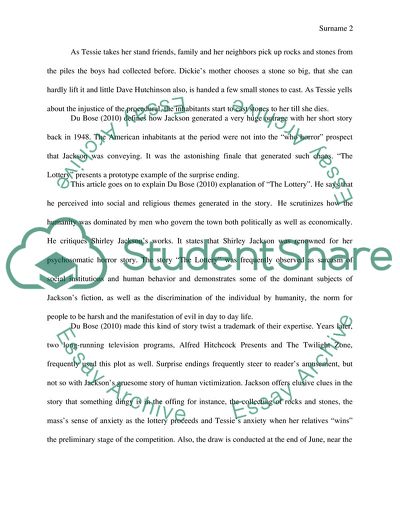Cite this document
(How Is the Theme of Tradition Reflected in Shirley Jacksons Short Stor Annotated Bibliography, n.d.)
How Is the Theme of Tradition Reflected in Shirley Jacksons Short Stor Annotated Bibliography. Retrieved from https://studentshare.org/literature/1877893-shirley-jackson-the-lottery
How Is the Theme of Tradition Reflected in Shirley Jacksons Short Stor Annotated Bibliography. Retrieved from https://studentshare.org/literature/1877893-shirley-jackson-the-lottery
(How Is the Theme of Tradition Reflected in Shirley Jacksons Short Stor Annotated Bibliography)
How Is the Theme of Tradition Reflected in Shirley Jacksons Short Stor Annotated Bibliography. https://studentshare.org/literature/1877893-shirley-jackson-the-lottery.
How Is the Theme of Tradition Reflected in Shirley Jacksons Short Stor Annotated Bibliography. https://studentshare.org/literature/1877893-shirley-jackson-the-lottery.
“How Is the Theme of Tradition Reflected in Shirley Jacksons Short Stor Annotated Bibliography”. https://studentshare.org/literature/1877893-shirley-jackson-the-lottery.


